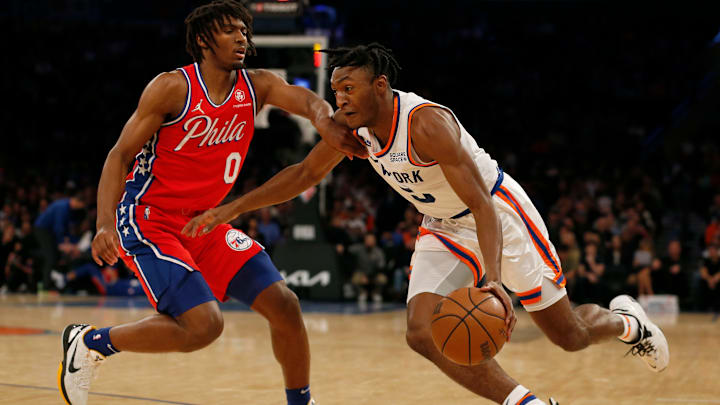The 2023 offseason has seen a record number of rookie scale extensions signed. Fourteen eligible players put pen to paper, blowing by the previous record of 11, set last offseason. In total, teams spent $1.625 billion on rookie-scale extensions, with the average contract coming in at 4.2 years, $116.1 million. While teams have a clear appetite to lock up their young players for the foreseeable future, not everyone from the 2020 draft class was so lucky.
Why rookie-scale extension don't come
A total of 13 players failed to agree to terms and will enter restricted free agency in the summer of 2024 should they receive a qualifying offer. The reasons why organizations and players fail to agree to an extension are varied. Sometimes, the player thinks they can get a better offer with multiple teams fighting for their services, and other times, the team isn’t convinced they fit into their long-term plans.
Regardless of the reason why extension talks are shelved, the decision squarely puts the ball in the player’s court. A big season can lead to a lucrative contract, while a poor year can cost them millions. Of the 13 players who failed to sign a rookie scale extension, these are the eight who have the best chance to turn disappointment into dollar signs.
8. Kira Lewis, New Orleans Pelicans
The battle for the eighth spot on this list was fierce, but not in a good way. Between Killian Hayes, Malachi Flynn, James Wiseman, Aleksej Pokusevski, Chuma Okeke, and Kira Lewis, there were almost no positive separators. The group has either played sparingly or played poorly when they have been on the court. The reason these guys weren’t extended was simple. Their teams don’t care if they continue to employ them.
In the land of the blind, the one-eyed man is king, and Kira Lewis is the one-eyed man lording over the eighth spot. He has only played 104 games over the past three seasons, but he produced a solid defensive season in 2022-23 and made an insane 44.1 percent of his 3s. While his 3-point shooting is solely a factor of luck in a small sample, his career free-throw shooting of 84.7 percent suggests he can probably convert 3s at a league-average clip.
If Lewis sticks in the NBA, he’ll have to make it as a feisty on-ball defender to make up for his small stature (6-foot-1) and hit enough 3s that teams either pay for not guarding him or make some effort to. And he largely did that in his 235 minutes last season. While other guys played more, they were so much worse when they did that it hurt their ranking.
